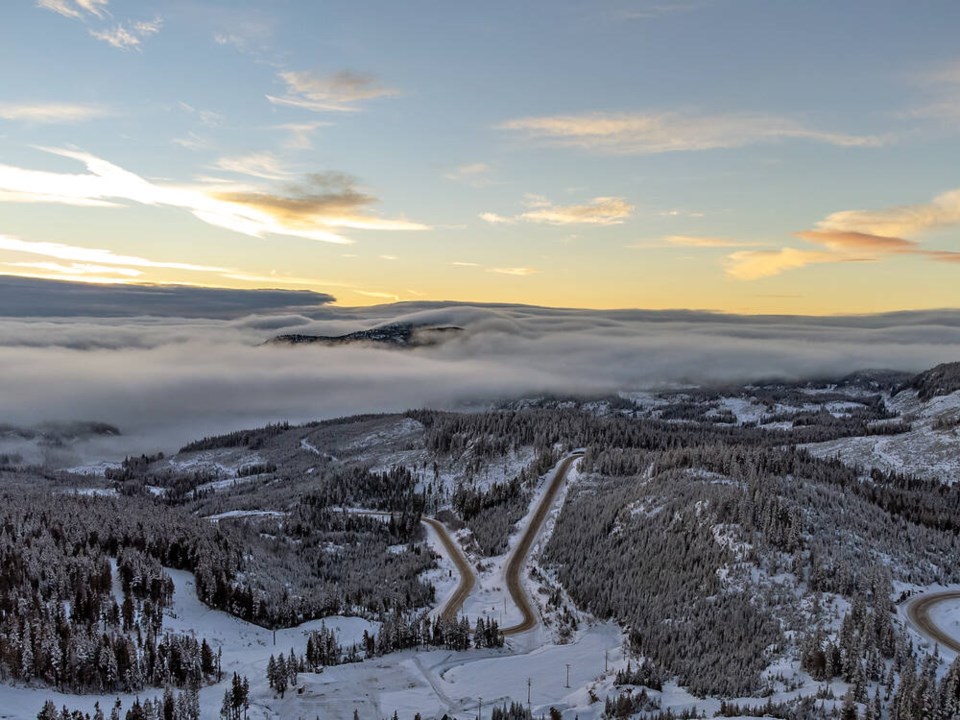A particularly low snowpack on the Island and across the province could mean B.C. is in for another difficult fire season.
A lack of snow means fuels such as trees and deadfall will likely dry out earlier, which typically leads to fires earlier in the year, said Armel Castellan, a warning preparedness meteorologist for Environment Canada.
The provincial snowpack is “extremely low,” averaging just 56 per cent of normal as of the start of the year, according to the province’s Snow Survey and Water Supply Bulletin.
Vancouver Island had 39 per cent of normal snowpack as of Jan. 1. The low snow levels raise the risk that the province could see another fire season like last summer’s, which kicked off with “extremely warm” weather in May and an unrelenting fire season “with very little precedent,” Castellan said.
A bad fire season is not a guarantee, however, he said. In 2019, after one of the warmest and driest springs on record, officials worried in June that the province was on the brink of large-scale fires, but rain for most of July quashed those fears, Castellan said.
“Right now, I think everybody has their fingers crossed,” he said.
The low snowpack comes with some good news. There’s a reduced risk of flooding of the severity that led to a state of emergency in Cache Creek, near Kamloops, last spring, Castellan said.
Snow forms a seasonal store of water, and lack of it affects some water reservoirs, particularly up-Island, said Alan Gilchrist, a professor of geography at Vancouver Island University.
The melting snowpack refills reservoirs during the summer as municipalities draw from them. With reduced snow melt, a reservoir is limited to what it can hold, as it won’t be replenished as it normally would, he said.
“I’m guessing water managers in the central part of the Island are probably getting a little bit uneasy,” Gilchrist said.
The low snowpack could lead to water rationing in the summer, he said, and individuals should think about how they can reduce their water use. Cutting back on watering the lawn has one of the biggest impacts on reducing use, he said.
Lack of snow is affecting B.C. ski resorts, including Mount Washington, which saw heavy rain on a 56-centimetre snowbase on Monday. The resort closed its Sunrise chairlift and said on its website that some runs might close over the next few days.
Snow and below-freezing temperatures are in the forecast this week. Monday saw a high of 5 C, but temperatures are expected to drop to –1 C on Thursday.
Castellan, who volunteers as a youth coach for the Strathcona Nordic Ski Club based at Mount Washington, said this winter is the worst he’s seen for snow since he moved to Victoria in 2016.
Over the weekend, as Castellan skied cross-country trails at Mount Washington, staff were closing sections of trails so quickly, it seemed every time he completed a lap, a new section closed.
He could see the snow melting on top as rain fell and from rivers flowing under the snow, which created sinkholes.
“Parts were impassable. You pretty much had to take your skis off,” Castellan said.
>>> To comment on this article, write a letter to the editor: [email protected]



